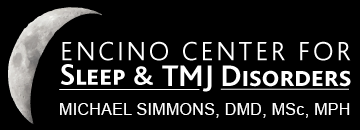Sleep and Aging: How Sleep Needs Change as We Get Older
As we age, our sleep patterns and needs often change. Getting enough high-quality sleep is important at any age, but seniors may need to make adjustments to their sleep habits and routines to continue getting the rest they require.
Total Sleep Time
Total sleep time refers to the total amount of time we spend asleep in 24 hours. As we age, the amount of sleep we need generally decreases. Newborns may sleep up to 16-18 hours per day, while teens need around 9 hours on average. Most adults require 7-9 hours of sleep per night. After age 60, nightly sleep often decreases to 6-8 hours. While individual sleep needs vary, getting 7-8 hours per night is still recommended for most older adults.

Sleep Stages
The different stages of sleep also change with age. As we get older, we usually spend less time in deep, slow-wave sleep and more time in lighter stages of sleep. Slow wave or “deep” sleep is restorative and helps us feel refreshed the next day. Seniors may get less deep sleep but tend to need the same amount of REM (rapid eye movement) sleep associated with dreaming. Disruptions to REM sleep can lead to daytime drowsiness.
Sleep Quality
Even if seniors spend enough time asleep at night, sleep quality often declines with age. Older adults are more prone to conditions like insomnia and sleep apnea, which can fragment sleep. Nighttime awakenings to use the bathroom also become more common. Due to these issues, seniors often report feeling less rested after a night’s sleep compared to younger adults who get the same amount of time sleep. Focusing on improving sleep quality is important.
Circadian Rhythms
Our circadian rhythms regulate feelings of sleepiness and wakefulness during the day. As we age, circadian rhythms often shift, making seniors feel sleepier earlier at night and wake up earlier in the morning. Exposure to natural daylight upon waking helps strengthen circadian rhythms. Avoid screen time before bed, establish a regular sleep-wake schedule, and make sure your bedroom is dark, quiet, and cool at night.
Health Issues
Various health issues associated with aging can also impact sleep. Conditions like arthritis, back pain, respiratory issues, diabetes, heart disease, Alzheimer’s, Parkinson’s, and frequent nighttime urination make sleep more difficult. Check with your doctor if you experience new or worsening sleep problems. Treatment of underlying health issues may improve sleep.
Tips for Better Sleep
To get the quality sleep you need as an older adult:
- Follow a consistent sleep-wake schedule
- Limit daytime naps to 30 minutes
- Make sure your bedding is comfortable
- Keep your bedroom dark, quiet, and cool
- Avoid alcohol, heavy meals, and screen time before bed
- Talk to your doctor if you have symptoms of sleep disorders
Getting enough deep, restorative sleep is important at any age. Pay attention to your own sleep needs and patterns, and take steps to improve sleep quality if you are having difficulties. With some adjustments to sleep habits and lifestyle, seniors can continue to enjoy the benefits of healthy sleep.
Sleep Apnea Treatment in Encino, CA
Are you or your loved one suffering from sleep apnea? Get the treatment you need with Dr. John Simmons at his Encino, CA office. Dr. Simmons is a board-certified sleep medicine specialist with over 15 years of experience treating sleep disorders. His state-of-the-art facility in Encino offers the latest sleep apnea therapies to help you sleep better and live healthier.
Call (818) 300-0070 today to schedule a consultation with Dr. Simmons. His office is conveniently located in Encino, so you can get expert care close to home. Don’t put off addressing your sleep apnea – call now to learn how Dr. Simmons can help you breathe easier at night!
